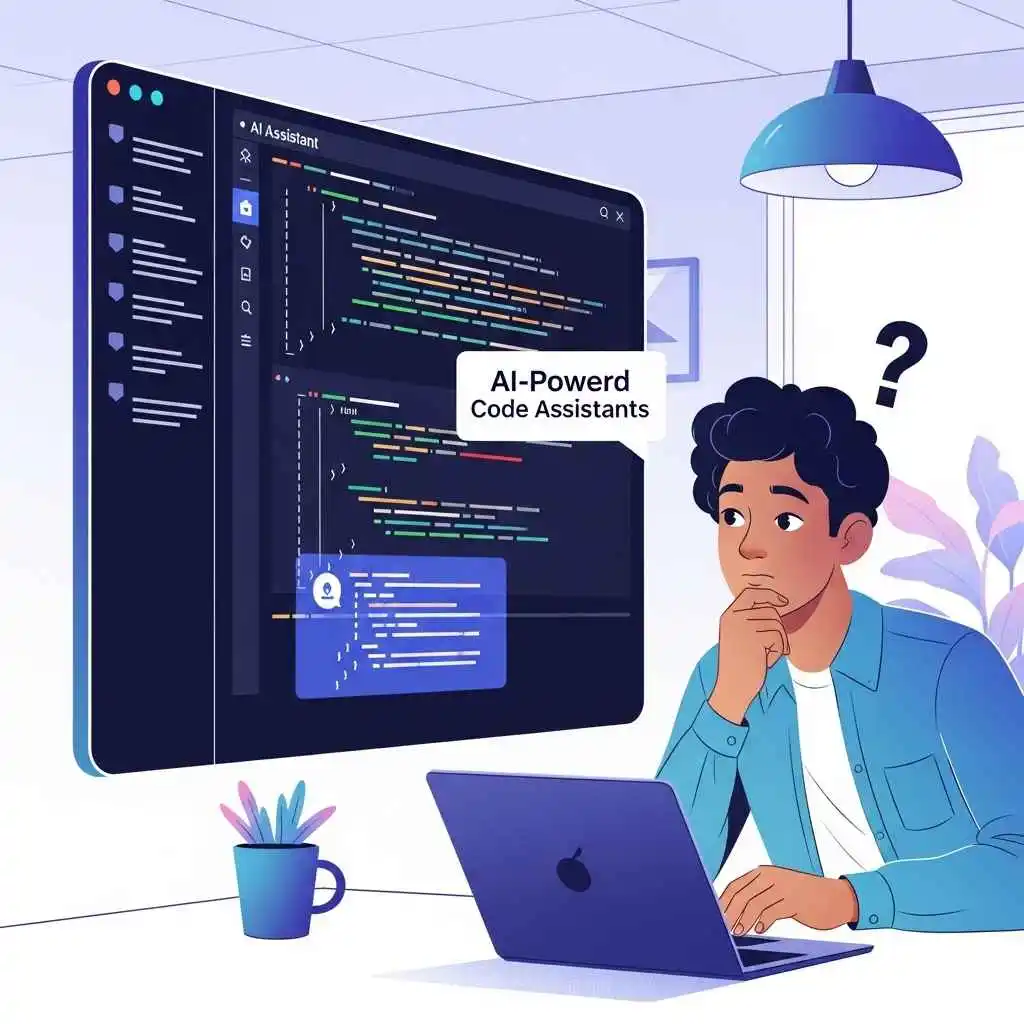AI-powered code assistants: Are they ready to replace human developers

The rise of AI has sparked both excitement and anxiety across various industries, and software development is no exception. AI-powered code assistants are becoming increasingly sophisticated, leading many to wonder: are human developers on the verge of being replaced by intelligent machines?
In this article, we'll explore the capabilities of these AI tools, examine their limitations, and discuss the future of software development in an age where humans and AI collaborate.
What Can AI Code Assistants Do Today?
AI code assistants have made impressive strides. Here's a glimpse into their current capabilities:
- Code Completion: Predicting and suggesting code snippets as you type, saving time and reducing errors.
- Code Generation: Creating entire blocks of code from natural language descriptions.
- Bug Detection: Identifying potential errors and vulnerabilities in existing code.
Think of them as super-powered pair programmers, always ready to offer suggestions and catch mistakes. They excel at repetitive tasks and can significantly boost productivity.
Where Do AI Code Assistants Still Struggle?
Despite their advancements, AI code assistants aren't perfect. They face challenges in:
- Complex Problem Solving: Tackling novel, intricate problems that require deep understanding and creative thinking.
- Abstract Reasoning: Grasping the broader context and implications of code changes.
- Communication & Collaboration: Effectively communicating with stakeholders and collaborating with team members.
Essentially, they lack the human touch – the ability to understand nuanced requirements and adapt to changing circumstances. They are tools, not replacements, for human intelligence and creativity. Ethical considerations, such as bias in training data, also remain a concern.
The Human Element: What Developers Still Bring to the Table
Human developers possess unique skills that AI cannot easily replicate:
- Critical Thinking: Analyzing problems, evaluating solutions, and making informed decisions.
- Creativity & Innovation: Designing novel solutions and pushing the boundaries of what's possible.
- Empathy & Communication: Understanding user needs and collaborating effectively with others.
Human developers are not just coders; they are problem-solvers, innovators, and communicators. They bring creativity, critical thinking, and emotional intelligence to the development process. These "soft skills" are essential for successful software development projects.
The Future: Collaboration, Not Replacement
A Symbiotic Relationship
The future likely involves a collaborative relationship between AI and human developers. AI will handle repetitive tasks and provide suggestions, freeing up developers to focus on more strategic and creative work. This synergy can lead to increased efficiency, higher quality code, and more innovative solutions.
The Evolving Role of the Developer
The role of the developer is evolving, not disappearing.
- Becoming Orchestrators: Guiding and managing AI tools to achieve desired outcomes.
- Focusing on Design: Spending more time on high-level design and architecture.
- Sharpening Soft Skills: Emphasizing communication, collaboration, and critical thinking.
Developers will need to adapt and acquire new skills to thrive in this changing landscape. Continuous learning and adaptability will be key. The demand for skilled developers who can leverage AI tools effectively will likely increase.
Preparing for the AI-Powered Future
So, how can developers prepare for this new reality?
- Embrace AI Tools: Experiment with and learn how to use AI code assistants effectively.
- Focus on Core Skills: Strengthen your problem-solving, design, and communication skills.
- Stay Curious: Keep learning and exploring new technologies and approaches.
The key is to embrace AI as a tool and focus on developing skills that complement its capabilities. Adaptability and a willingness to learn will be crucial for success. The future is bright for developers who are willing to embrace change.
Conclusion
AI-powered code assistants are powerful tools that can enhance developer productivity, but they are not yet ready to replace human developers entirely. The human element – critical thinking, creativity, communication, and ethical considerations – remains essential for successful software development. The future lies in collaboration, with AI augmenting human capabilities and enabling developers to focus on higher-level tasks and innovation.